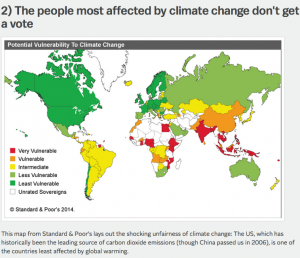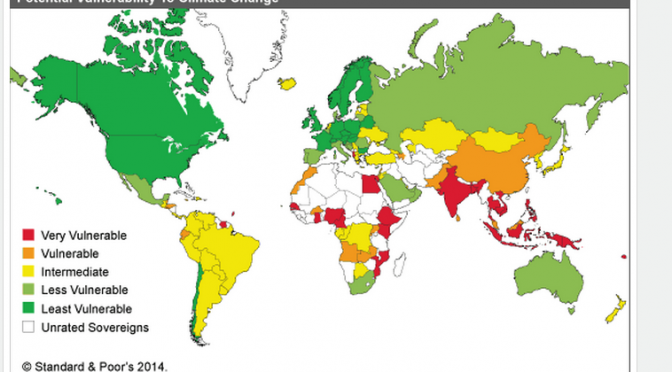There is an article at Vox by Ezra Klein that is well worth reading.
He has seven reasons why America will fail at global warming. If you don’t want to read this, he also has a brief video “conversation” with Te-Nehisi Coates at the top of the page in which he summarizes the points he makes in more detail in the article.
Klein’s argument is pretty straightforward. We’re too late getting started fixing the climate (if it is fixable), and our political processes do a poor job of taking on a problem that requires long-term sacrifices for less-than-immediate gains.
He does a good job, too, of showing how the Republican position on putting a price on carbon has changed radically since John McCain ran for president (and lost). McCain supported it. He also writes about why we can’t expect to engineer our way out of the problem scientifically.
All of this is pretty depressing, but he also does a good job of covering his butt at the end, saying he is pessimistic but not fatalistic. He hopes a solution will emerge.
As I watched him talk with Coates in the video I realized that while Klein was limning the depths of the coming disaster, he was also painting this as an obvious problem for America. But as this map shows, while the US may produce a disproportionate percentage of the world’s carbon emissions, we also have one of the biggest cushions for absorbing climate change. It isn’t really our problem yet, unless we look further into the future. (click to enlarge)
 Klein quotes Matt Yglesias on this: “Very few of us are subsistence farmers. Relatively few of us live in river deltas, flood plains, or small islands. We are rich enough to be able to feasibly undertake massive engineering projects to safeguard our at-risk population centers. And the country is sufficiently large and sparsely populated that people can move around in response to climate shocks.”
Klein quotes Matt Yglesias on this: “Very few of us are subsistence farmers. Relatively few of us live in river deltas, flood plains, or small islands. We are rich enough to be able to feasibly undertake massive engineering projects to safeguard our at-risk population centers. And the country is sufficiently large and sparsely populated that people can move around in response to climate shocks.”
So, the question becomes, how do we convince Americans to make significant changes and sacrifices when the short term threat level isn’t nearly as dire as the long term threat?
Marching felt great, we should do more of that, but we need to keep talking broadly about how the system works and why it isn’t really designed to answer this question. Maybe, I worry, we’re not designed to answer questions like this one as a species, but I’m not pessimistic. I’m pretty sure that we will hammer on this problem, as other ones, with increasing urgency. And while we talk about it and argue about it and elect public officials who recognize the problems, we’ll make progress.
Will it be enough, soon enough? I hope so.

